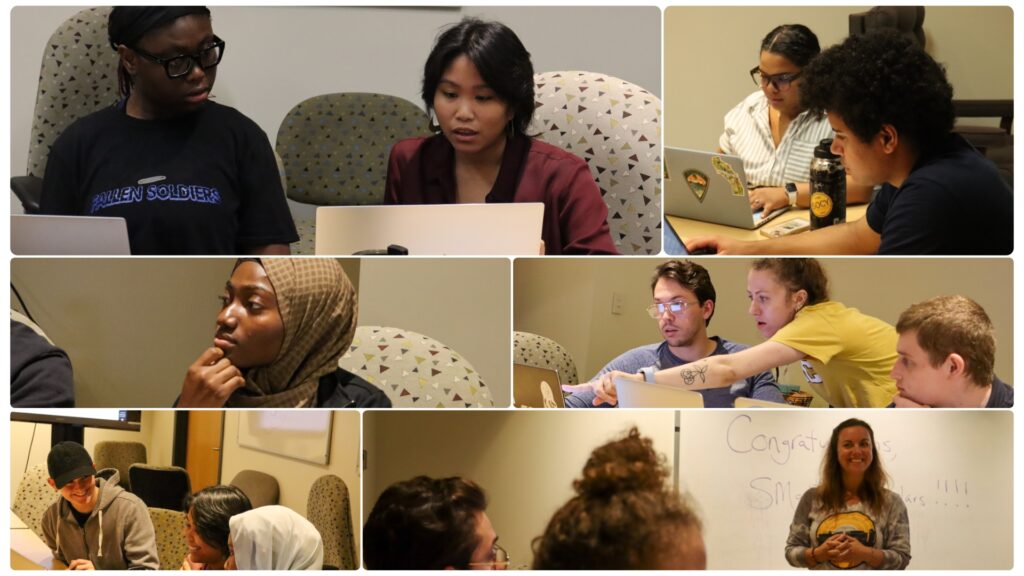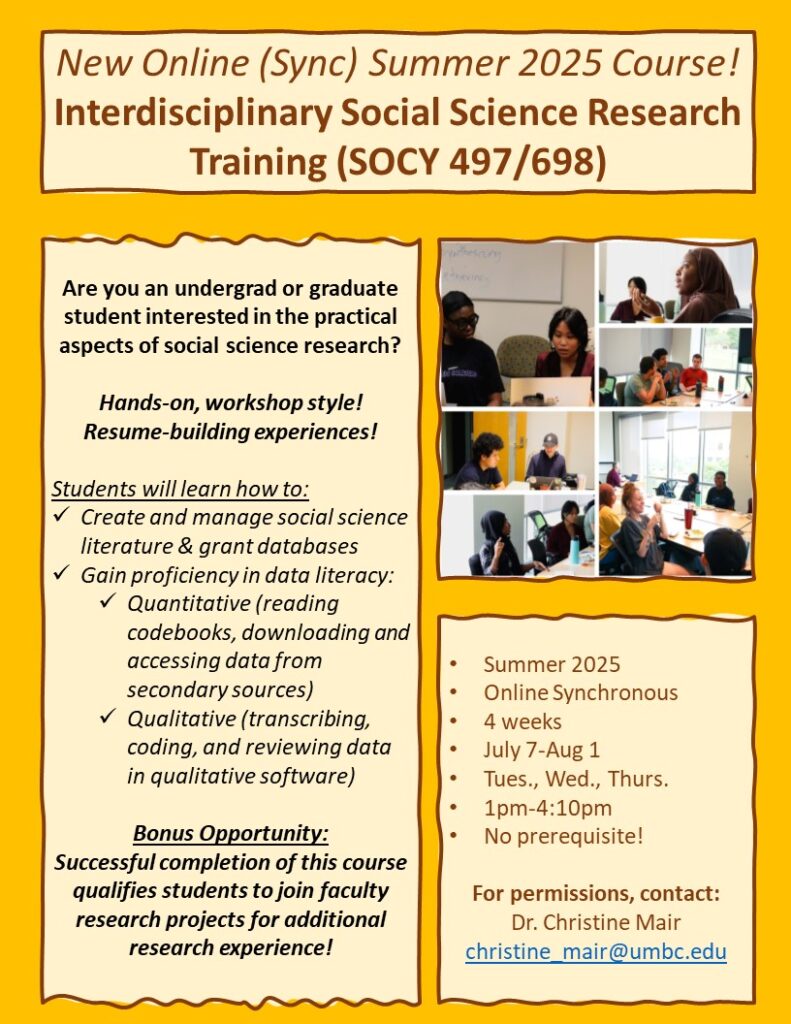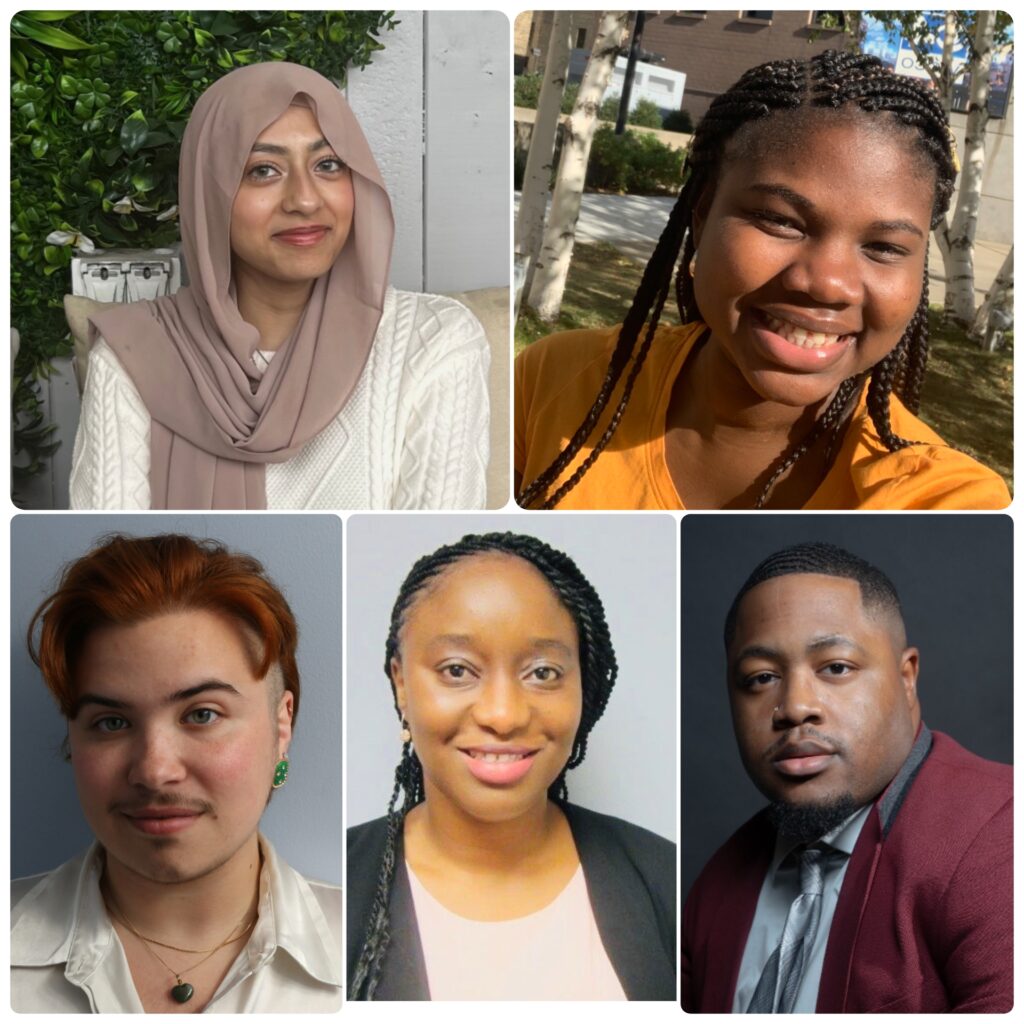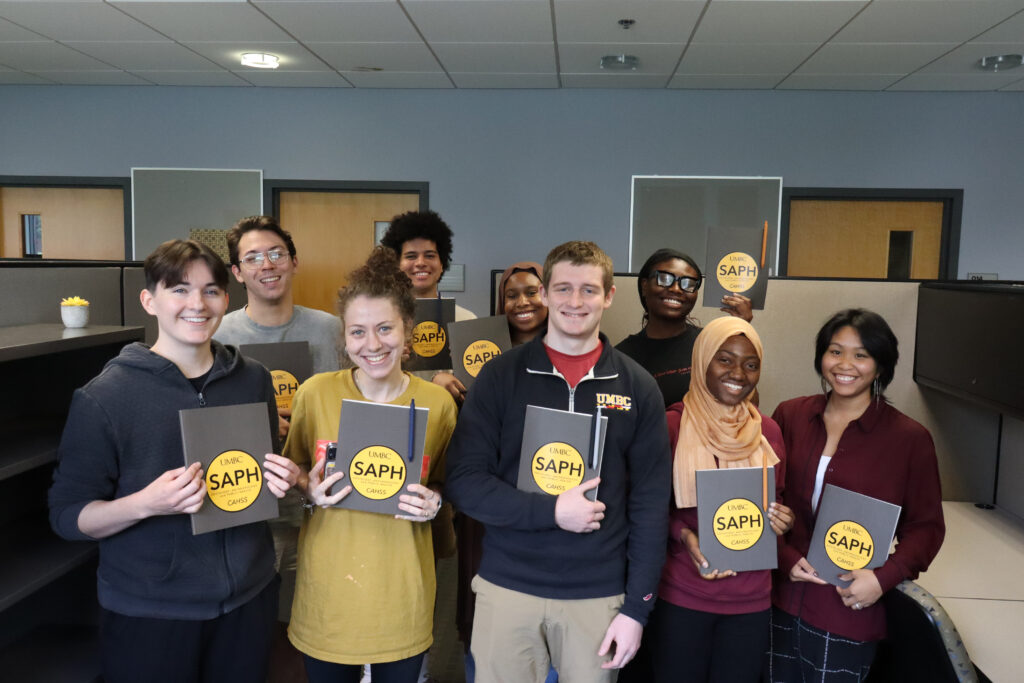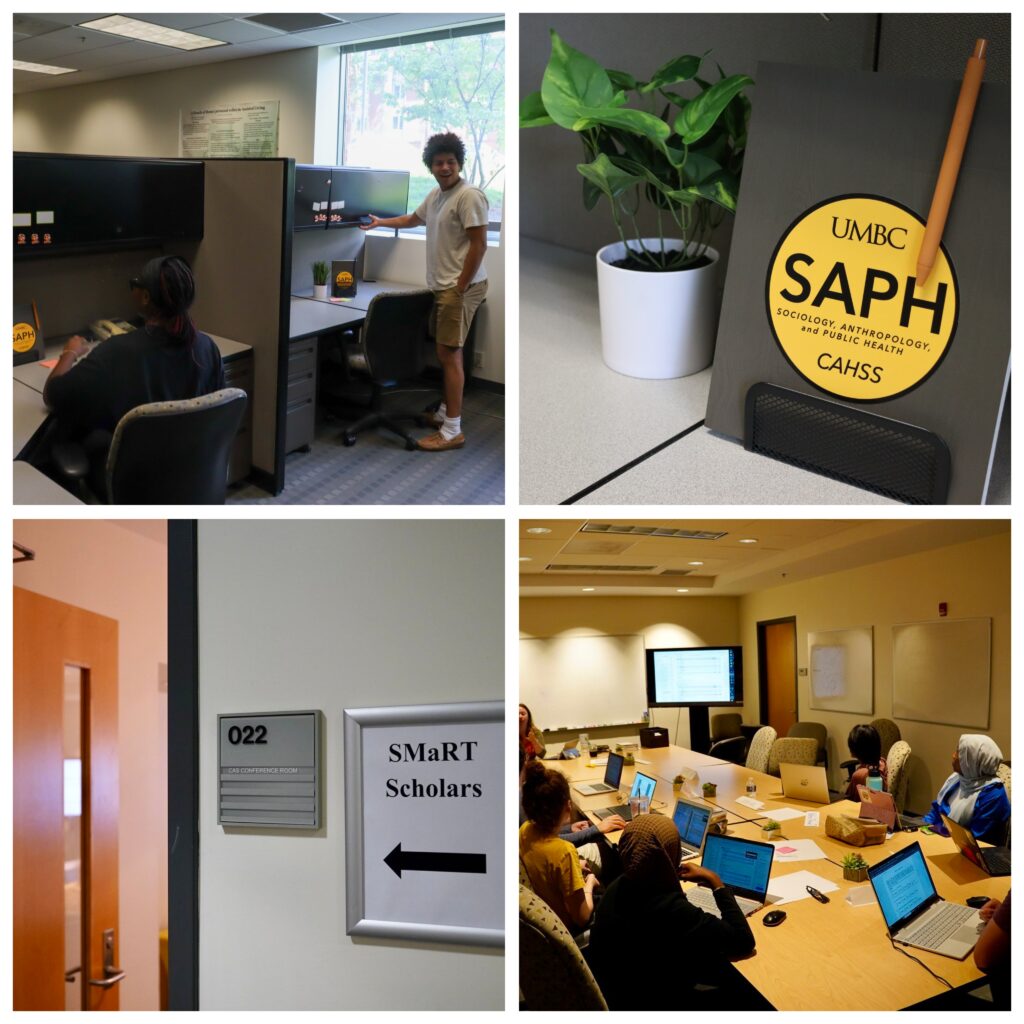The Center for Health, Equity, & Aging (CHEA) in the Department of Sociology, Anthropology, & Public Health (SAPH) at the University of Maryland, Baltimore County (UMBC) has established a new student research training opportunity called the Student Mentoring and Research Training (SMaRT) Scholars Program. The first SMaRT Scholar cohort (2023-2024) was generously sponsored by the College of Arts, Humanities, and Social Sciences (CAHSS) Dean’s Office.
The SMaRT Scholars Program is focused on building basic social science research skills in literature and grant database management, quantitative data literacy, and qualitative data literacy. Graduate students will receive additional training and experience in facilitating, managing, and leading research teams.
Interested in Becoming a SMaRT Scholar?
Enrollment for the 2025-2026 cohort is now open!!
Questions? Contact Dr. Christine Mair at: christine_mair@umbc.edu
- To participate, students must first enroll in the 4 week, online (synchronous) summer session of Interdisciplinary Social Science Research Training (see flyer below).
- Students who excel in this course will be invited to join the Student Mentoring and Research Training (SMaRT) Scholar Program. SMaRT Scholars enroll in 1-3 credit hours of Research Practicum in the fall and/or spring after the summer training.
Congratulations to our newest cohort (2024-2025) of SMaRT Scholars!
Don Mccray (Sociology)
Muskaan Hammad (Public Health)
Marie-Charlotte Agbogbe (Biology + Public Health)
August Wichmann (Applied Sociology)
Rouguia Barry (Applied Sociology)
Thank you to our 2023-2024 inaugural cohort of SMaRT Scholars!
Jaminette Nazario (Gerontology), RB Brauer (Applied Sociology), Jordana Oman (Applied Sociology), Suliyat Adewuyi (Public Health), Halima Thomas (Public Health), Tristan Diaz (Anthropology + Sociology), Sophia Wahl (Anthropology + Psychology), Ethan Broadbent (Anthropology), Alex Parrish (Sociology), Adeola Ojomo (Sociology)
